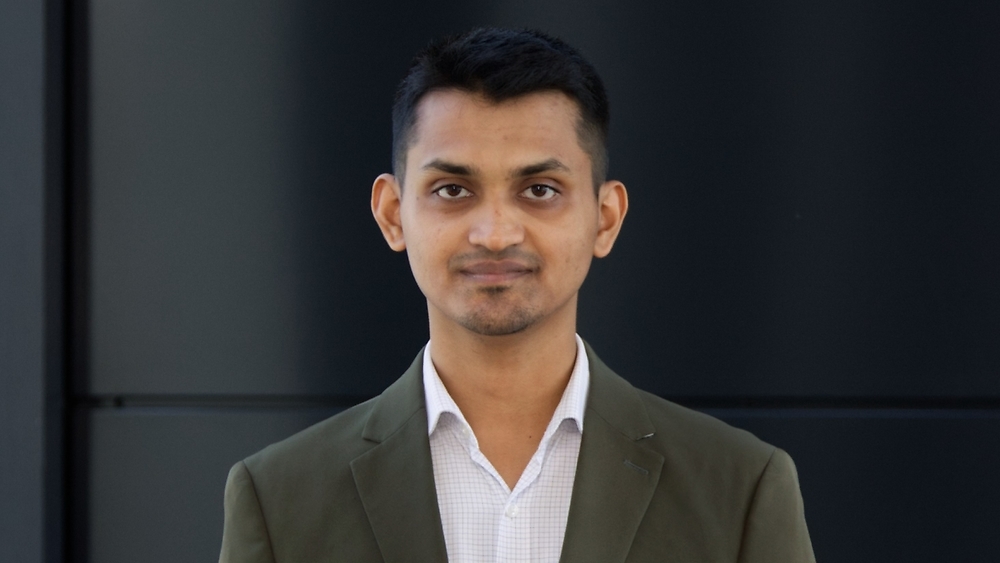June 28, 2024 | News | New Faces at MPIDR
Welcome Md Anwer Hossain!

Anwer Hossain joins the team of the Laboratory of Fertility and Well-Being as a new team member. © MPIDR/Schulz
The Laboratory of Fertility and Well-Being welcomes Md Anwer Hossain as a member to the team. Anwer joins MPIDR coming from the Department of Social Relations of the East West University in Bangladesh where he worked as a lecturer and taught undergraduate students in the Population and Public Health Sciences program. He obtained his Master of Social Sciences in Population Sciences degree from the Department of Population Sciences at the University of Dhaka, Bangladesh. His thesis title is “Understanding the Mediation Effect of Women Empowerment in Education-Fertility Nexus in Bangladesh”. He also obtained his Bachelor's degree from the same department.
What’s your job at MPIDR and how long will you be working here?
I am a part of the Laboratory of Fertility and Well-Being and its flagship project, BIOSFER. My doctoral project, titled "Social Demography of Menopause”, investigates the variations in the timing of menopause across generations and social groups in both developed and developing countries. Our research examines factors such as family formation characteristics, socioeconomic background, and migration status to determine their influence on the age at which women experience menopause. Additionally, we are interested in how variables like the age at menarche and women’s reproductive history impact the health outcomes before, during, and after menopause. I will be at the MPIDR until February 2026, and then complete the PhD program at the University of St Andrews, UK.
What is your motivation to work in this field of research?
My fascination with the interdisciplinary nature of demography began during my undergraduate studies. With the global population aging rapidly, understanding menopause is increasingly critical for women's health and well-being. Most existing research on menopause has been conducted from a biomedical perspective, with limited attention from demographers. This gap in the literature has motivated us to focus on this pivotal topic, aiming to contribute valuable insights from a demographic perspective.
Why did you choose MPIDR as your new employer?
The reputation of MPIDR as a premier center for European demography was a major factor in my decision. MPIDR offers access to exceptional resources and facilities, along with a vibrant network of demographers. The institute also provides unparalleled doctoral training by leading experts in the field, making it an ideal place for my research and professional development. Furthermore, the collaboration with the University of St Andrews, UK, which is the third oldest university in the English-speaking world and one of the most highly regarded universities for multidisciplinary demography, made the decision easier for me.
Where are you from? What do you miss most about home?
I come from Bangladesh, a beautiful country with a brave history, rich culture, and strong family ties. I miss my parents and extended family the most. Rostock, with its smaller size and quieter atmosphere compared to what I am accustomed to, has a much lower population density. This adjustment has been significant. Fortunately, I have my wife, Shoma Chowdhury, by my side. She has been incredibly supportive throughout this transition. We have been exploring the city together, and having her here has made the adjustment much easier. It has been a wonderful way for us to bond over this new experience.
What is your favorite and what is your least favorite part about work?
I find demographic and statistical analyses particularly rewarding. There is a real sense of satisfaction in uncovering insights and stories from the data. On the other hand, literature reviews present a challenge for me at the moment. While I am developing my research skills, I recognize the need to become a more voracious reader. I see this as a valuable opportunity for growth and achieving my goals.